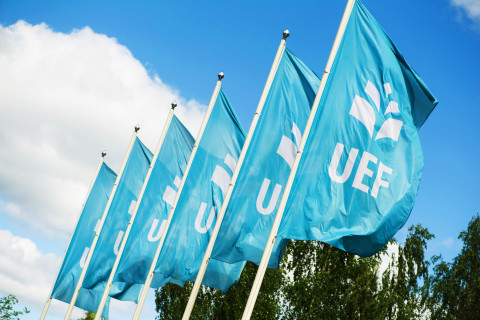Kone Foundation has awarded, from its autumn 2020 calls, more than 1.5 million euros in grants to projects run by the University of Eastern Finland’s researchers.
Snag project brings together science and art
Associate Professor Tuomas Aakala and their working group secured a grant of 377,500 euros for the Snag project, which seeks to enhance our scientific understanding of, and provide artistic insight into, snags, i.e. dead or dying standing trees, which are an almost mystical structural feature of forests.
Lamenting traditions in the modern world
Docent Elina Hytönen-Ng, PhD, and their working group secured a grant of 399,100 euros for the Tear Ducts project, which focuses on modern-day practitioners of lamenting traditions, such as those described in Kalevala, and the meanings they give for the laments. Through art and research, the group reflects on the role of laments in a modern person’s life: what do laments and lamenting traditions consist of today? The researchers/artists also intend to take a closer look at the decaying communality of society which is clearly highlighted by the coronavirus pandemic.
Research-based approach to using literary art to support children’s linguistic and emotional skills
Researcher and Artist Veera Kivijärvi secured a grant of 90,000 euros for a project which explores the use of literary art as a supporter of children’s linguistic and emotional skills (SATAKIELI).
Trail cameras as a tool for assessing seal health
Postdoctoral Researcher Milaja Bennett secured a grant of 18,500 euros for a project which explores the feasibility trail cameras and photogrammetry for the assessment of the health and well-being of endangered seals, which are difficult to study.
Dance at the turning points of life
Hanna Pohjola, Doctor of Arts (Dance), secured a grant of 185,100 euros for a project which explores the experienced and social consequences of dance at different turning points of life. The data for the study consists of people’s narratives of their illness.
Safe circular economy through sewage sludge biotesting and usage guidelines
Researcher Katri Senilä, MSc, secured a grant of 53,800 euros for a project that promotes safe circular economy through sewage sludge biotesting and usage guidelines. The project seeks to produce reliable knowledge on, and suitable tools for, reliable safety assessment of sewage sludge based recycled fertilizers for agricultural use.
It is important to detect changes in peatland ecosystems
Franziska Wolff, MSc, secured a grant of 92,000 for the Sphagnum Mosses as Ecosystem Engineers in transitional Mires: A Drone-based Analysis project. The project seeks to detect transitions of peatland ecosystems with help of archived aerial images and a variety of modern, high-resolution drone imagery complimented by field data. My hypothesis is that transitions can be detected on drone images by identifying vegetation patterns and hydrological features. The key element in my research are Sphagnum mosses, which are ecosystem engineers distributed along the hummock-hollow gradient.
Diversities of the environmental movement in Russia
University Lecturer Juha Kotilainen, DScoSc, and their working group secured a grant of 306,000 for the Diversities of the Environmental Movement in Russia project. The project analyses the current state of the Russian environmental movement, its different forms of operation, and its possibilities to influence and promote sustainability within the Russian society.
Find the researchers in UEF Connect
Statistics and listings of Kone Foundation’s grants, prizes and donations in 2020

